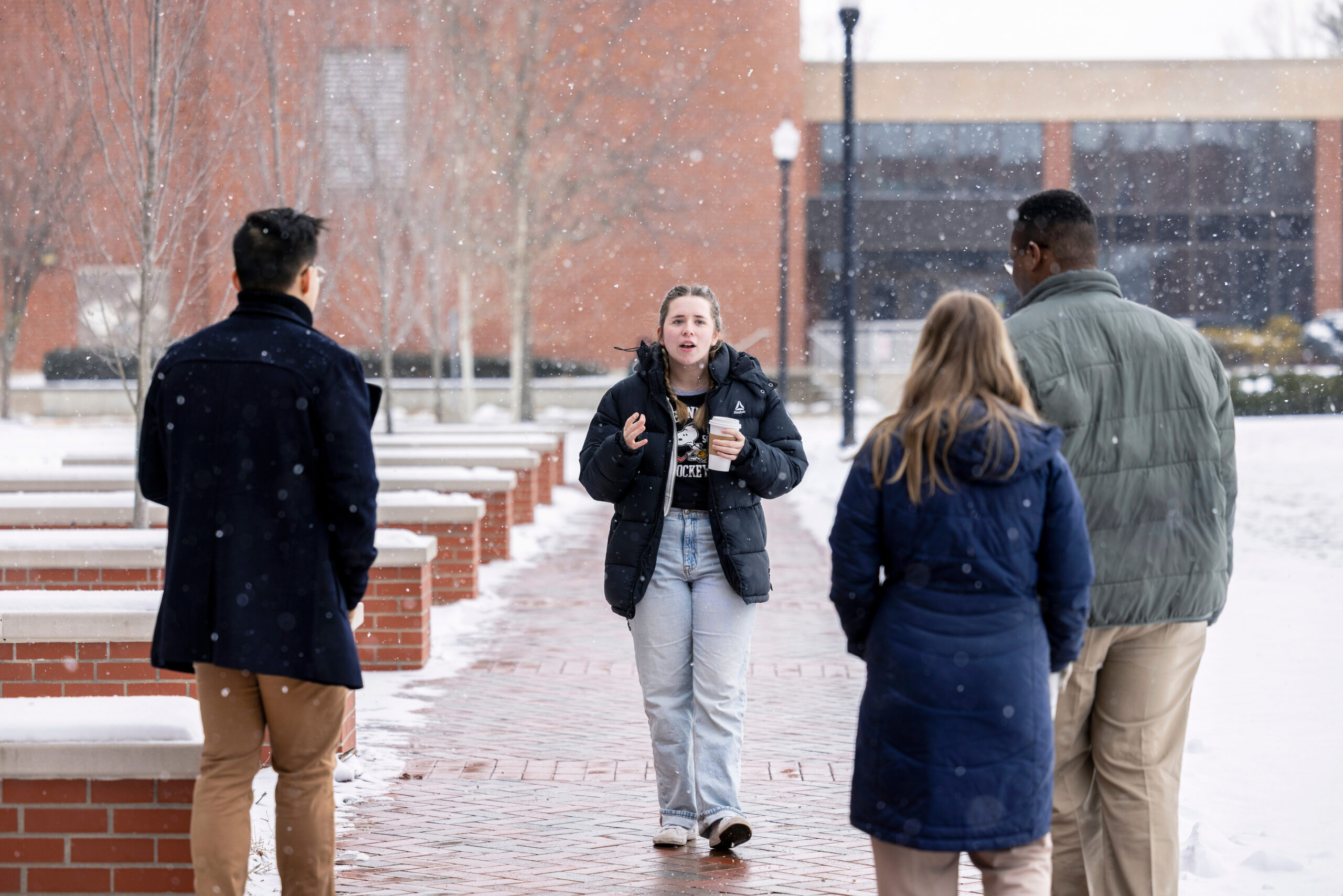IHEP Applauds the Biden Administration’s Focus on Student Success and Basic Needs Security with New Executive Actions
Published Jan 20, 2022
Washington, D.C. (January 20, 2022) – Earlier today, the Biden Administration announced a new set of executive actions to help institutions support student success and wellbeing as our nation moves from crisis to recovery. These actions include making an additional $198 million in American Rescue Plan aid available to institutions that serve today’s students and issuing new guidance to help institutions better support students’ basic needs. In response to today’s announcement, IHEP President and CEO, Mamie Voight, issued the following statement:
“IHEP applauds the Biden Administration’s continued focus on supporting equitable access, completion, and post-college success for today’s students and celebrates the executive actions taken today to strengthen student supports and better provide for students’ basic needs. The country felt the impact of the COVID-19 pandemic on our economy, in our educational system, and in deepening inequities, as Black, Latinx, Indigenous, Asian American and Pacific Islander (AAPI), and low-income communities were disproportionately harmed. Now, as students continue to navigate the changing health situation, we are encouraged by the steps taken by the Administration to provide necessary funding to the institutions serving today’s students, to leverage federal funds to support students’ basic needs, and to encourage the thoughtful use of data to connect students with important public benefit programs.
“The funding provided to both students and institutions through the American Rescue Plan’s Higher Education Emergency Relief Fund (HEERF) has been critical to supporting student success and wellbeing. The colleges and universities that serve students of color, students from low-income backgrounds, and rural students—institutions that have historically been underfunded—are now addressing new COVID-19 variants and navigating continued educational disruption, all while working to rebuild institutional capacity, reconnect with students who have fallen off track to graduate, and reimagine a better way of serving today’s students as we emerge from the pandemic.
“We applaud the $198 million made available today under the Supplemental Support under American Rescue Plan (SSARP) to help institutions – including community colleges and rural-serving institutions – implement evidence-based practices to promote student and community health, support students’ basic needs, sustain students’ continued enrollment, and reconnect students who have stopped out.
“IHEP welcomes new guidance to institutions on how to best use remaining institutional HEERF dollars to support students’ basic needs and to help students cover non-tuition costs—including food, housing, childcare, books, healthcare, including mental healthcare, transportation, and emergency expenses—which threaten to derail students’ continued enrollment and educational success. IHEP also celebrates a new $5 million grant program to six community colleges to develop innovative programs to support student food, housing, and healthcare security.
“Finally, we applaud the announcement of a new Dear Colleague Letter providing guidance to institutions on how they can use Free Application for Federal Student Aid (FAFSA) data to connect students to important public benefit programs, including the Supplemental Nutritional Assistance Program (SNAP) and the Federal Communications Commission’s (FCC) Affordable Connectivity Program, and urging colleges to coordinate with institutional offices and student groups to increase uptake of these benefits.
“We thank the Biden Administration for recognizing the continued need to support students of color, students from low-income backgrounds, rural students, and the institutions that serve them. By leveraging resources – financial investments, data assets, and promising practice guidance, the actions today are critical steps to rebuilding our postsecondary system around the needs and experiences of today’s students, so higher education fulfills its potential to deliver a better living and a better life for all students, regardless of race, income, background, or circumstance.”


